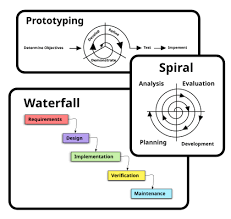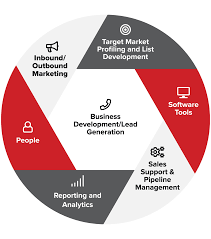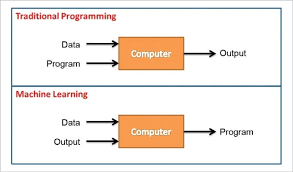Mastering the Software Development Life Cycle (SDLC): A Comprehensive Guide
Understanding the Software Development Life Cycle (SDLC)
The Software Development Life Cycle (SDLC) is a structured process that defines the steps involved in developing software applications. It encompasses everything from initial planning to deployment and maintenance of the software. Understanding the SDLC is crucial for ensuring successful and efficient software development projects.
Phases of the SDLC
The SDLC typically consists of several phases, each with its own set of activities and deliverables:
- Planning: This phase involves defining project scope, requirements gathering, feasibility analysis, and creating a project plan.
- Analysis: In this phase, detailed requirements are documented, analyzed, and validated to ensure they align with business objectives.
- Design: The design phase focuses on creating a blueprint for the software solution, including architecture design, database design, UI/UX design, and more.
- Development: During this phase, developers write code based on the design specifications. Testing is also conducted to identify and fix any defects.
- Testing: Quality assurance professionals perform various tests to ensure that the software meets all requirements and functions as expected.
- Deployment: Once testing is complete and the software is approved for release, it is deployed to production environments for end-users to access.
- Maintenance: The maintenance phase involves ongoing support, bug fixes, updates, and enhancements to ensure the software remains functional and up-to-date.
Importance of SDLC
The SDLC provides a systematic approach to software development that helps organizations manage resources effectively, reduce risks, improve communication among team members, and deliver high-quality products on time and within budget. By following a structured SDLC process, organizations can increase efficiency and minimize errors throughout the development lifecycle.
In conclusion, understanding the Software Development Life Cycle (SDLC) is essential for anyone involved in software development projects. By following a well-defined SDLC process tailored to specific project needs, organizations can achieve successful outcomes and deliver value to their stakeholders.
Understanding SDLC: Key Phases, Models, and Methodologies Explained
- What is SDLC and its 6 phases?
- What is meant by SDLC?
- What is SDLC with an example?
- What are the 7 stages of SDLC?
- What are the 7 models of SDLC?
- What are the five 5 phases of SDLC?
- What are the 8 phases of SDLC?
- Is SDLC waterfall or Agile?
What is SDLC and its 6 phases?
The Software Development Life Cycle (SDLC) is a structured process that outlines the steps involved in creating software applications. It consists of six key phases: Planning, Analysis, Design, Development, Testing, Deployment, and Maintenance. In the Planning phase, project scope and requirements are defined. The Analysis phase involves detailed requirement gathering and validation. Design focuses on creating a blueprint for the software solution. Development entails coding and testing for defects. Testing ensures quality and functionality. Deployment involves releasing the software to production environments. Maintenance includes ongoing support and updates to keep the software current and operational. Understanding these six phases of the SDLC is essential for successful software development projects.
What is meant by SDLC?
The Software Development Life Cycle (SDLC) refers to a structured process that outlines the stages involved in developing software applications, from inception to deployment and maintenance. SDLC encompasses planning, analysis, design, development, testing, deployment, and maintenance phases. It serves as a roadmap for software development projects, ensuring that they are well-organized, efficient, and aligned with business objectives. Understanding SDLC is crucial for software developers and project stakeholders to manage resources effectively, deliver high-quality products, and achieve project success within defined timelines and budgets.
What is SDLC with an example?
The Software Development Life Cycle (SDLC) is a structured process used by software development teams to plan, design, build, test, deploy, and maintain software applications. An example of the SDLC in action can be seen in the development of a mobile banking app. In this scenario, the planning phase involves defining the app’s features and functionalities, while the analysis phase focuses on gathering requirements such as user authentication and transaction processing. The design phase includes creating wireframes and UI designs for the app, followed by actual development where developers write code based on the design specifications. Testing ensures that the app functions correctly before deployment to app stores. Once deployed, ongoing maintenance and updates are essential to keep the app secure and up-to-date with changing user needs. This example illustrates how the SDLC guides software development projects from conception to completion with a systematic approach.
What are the 7 stages of SDLC?
The 7 stages of the Software Development Life Cycle (SDLC) represent a comprehensive framework that guides the development of software applications from inception to deployment and maintenance. These stages include planning, analysis, design, development, testing, deployment, and maintenance. Each stage plays a crucial role in ensuring that software projects are executed efficiently and effectively, meeting both technical requirements and business objectives. By following these structured stages, organizations can streamline their development processes, enhance collaboration among team members, and deliver high-quality software solutions that align with user needs and expectations.
What are the 7 models of SDLC?
One frequently asked question about the Software Development Life Cycle (SDLC) is regarding the different models that can be used in the development process. There are seven commonly recognized models of SDLC, each offering a unique approach to software development. These models include Waterfall, Agile, Iterative, Spiral, V-Shaped, Big Bang, and Prototype. Each model has its own set of characteristics, benefits, and drawbacks, allowing organizations to choose the most suitable model based on their project requirements and goals. Understanding these SDLC models is essential for project managers and development teams to select the right methodology that aligns with their project scope and objectives.
What are the five 5 phases of SDLC?
One frequently asked question about the Software Development Life Cycle (SDLC) is, “What are the five phases of SDLC?” The five key phases of SDLC are Planning, Analysis, Design, Development, Testing, Deployment, and Maintenance. Each phase plays a crucial role in the software development process, from defining project requirements and creating a design blueprint to coding, testing for quality assurance, deploying the software for use, and maintaining it post-deployment. Understanding and effectively navigating through these phases are essential for ensuring successful software development projects that meet business objectives and user needs.
What are the 8 phases of SDLC?
One frequently asked question regarding the Software Development Life Cycle (SDLC) is about the eight phases that constitute this structured process. The eight phases of SDLC are Planning, Analysis, Design, Development, Testing, Deployment, Maintenance, and Monitoring. Each phase plays a crucial role in the software development process, from defining project scope and requirements to ensuring the software remains functional and up-to-date post-deployment. Understanding and effectively navigating through these eight phases of SDLC is essential for organizations to successfully deliver high-quality software solutions that meet user requirements and business objectives.
Is SDLC waterfall or Agile?
The Software Development Life Cycle (SDLC) can be implemented using different methodologies, with two common approaches being the waterfall model and Agile methodology. The traditional waterfall model follows a linear sequential flow, where each phase of the SDLC is completed before moving on to the next. In contrast, Agile methodology emphasizes flexibility and iterative development, allowing for continuous feedback and adaptation throughout the software development process. While some projects may benefit from the structured approach of the waterfall model, others may find Agile more suitable for its adaptability to changing requirements and faster delivery of increments. Ultimately, whether SDLC is considered waterfall or Agile depends on the specific needs and preferences of the project stakeholders.












